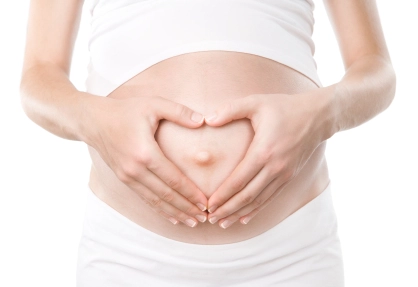Most moms-to-be talk about unusual cravings during pregnancy. A smaller group are pregnant women struggling with a lack of appetite during these nine months. However, this does not mean that the problem does not exist. Moreover, it can carry adverse consequences for the course of pregnancy. Check out the ways to deal with lack of appetite during pregnancy.
Lack of appetite during pregnancy- causes
Most often, lack of appetite is reported by women in early pregnancy. The first trimester is the time when many changes occur in the woman’s body that enable favorable conditions for the development of the fetus. However, both hormonal and anatomical changes sometimes lead to bothersome symptoms characteristic of early pregnancy. One of the more common complaints is nausea and vomiting. At the same time, moms-to-be complain about the lack of appetite that appears in the first weeks of pregnancy. A high concentration of beta- HCG in the body of the mother-to-be is responsible for nausea and lack of desire to take in food. In the later stages of pregnancy, the reason for the lack of appetite may be the stress of the impending delivery. For this reason, you should never underestimate it and be mindful of your needs as well, and if you experience a drop in mood or reduced drive, go to a specialist for help.
Read also:
Pregnancy cravings-can I eat everything while pregnant?
Ways to deal with lack of appetite during pregnancy
Many pregnant women seek home remedies for nausea that occurs during pregnancy. Recommended methods include drinking tea with ginger or eating crackers. However, these are ways that are not effective for every mom-to-be, so it is best to find your own way. Most often, as nausea subsides, appetite returns. However, if nausea and vomiting are severe and impede daily functioning, including interfering with regular eating, the gynecologist may prescribe medication to reduce the discomfort. However, they should not be taken on their own.
For lack of appetite at the end of pregnancy resulting from excessive stress, relaxation methods and yoga are recommended. These exercises calm the breathing, quieten it, and thus reduce the so-called “noise”. “stomach squeeze.” The mother-to-be should not eat “for two” but “for two.” Therefore, in order for the pregnancy to develop properly, it is necessary to take care of a balanced diet that provides all the necessary ingredients, thus limiting processed foods.
Lack of appetite during pregnancy- risks
Caloric requirements depend primarily on the BMI before pregnancy. Underweight women should take in about 40 kcal/kg, and obese ladies about 19 kcal/kg of body weight. Lack of appetite during pregnancy, and therefore lower caloric intake, can lead to underweight. This one, like being overweight, has a negative impact on both the mother and the developing fetus. Deficiencies of nutrients necessary for the proper development of the child may appear. The most dangerous are folic acid and iron deficiencies. They can lead to anemia in the pregnant woman and the occurrence of developmental defects mainly affecting the baby’s central nervous system. Miscarriages or low-weight births are also more common when underweight. In addition to being underweight, morning nausea and vomiting can also lead to dehydration requiring hospitalization and intravenous treatment.
Rate this article:











